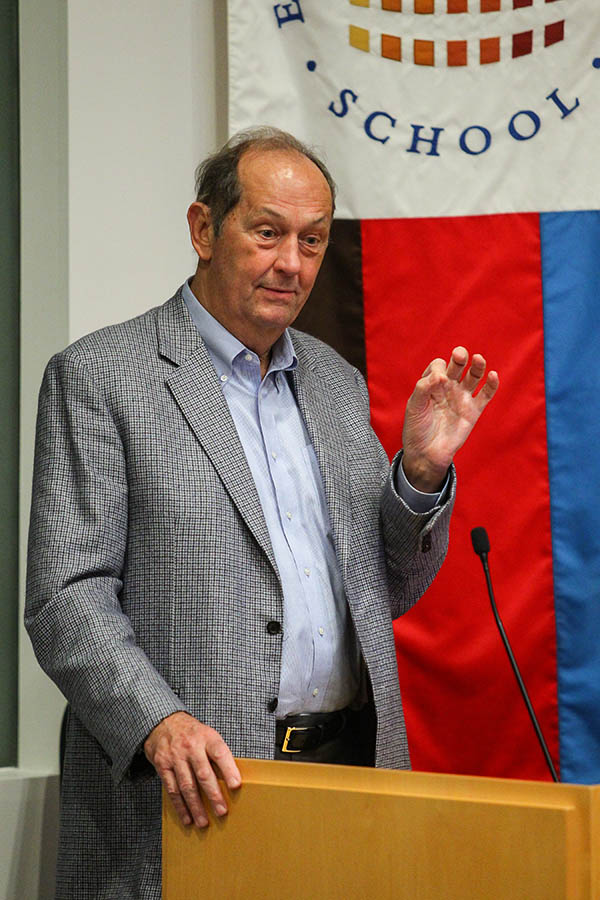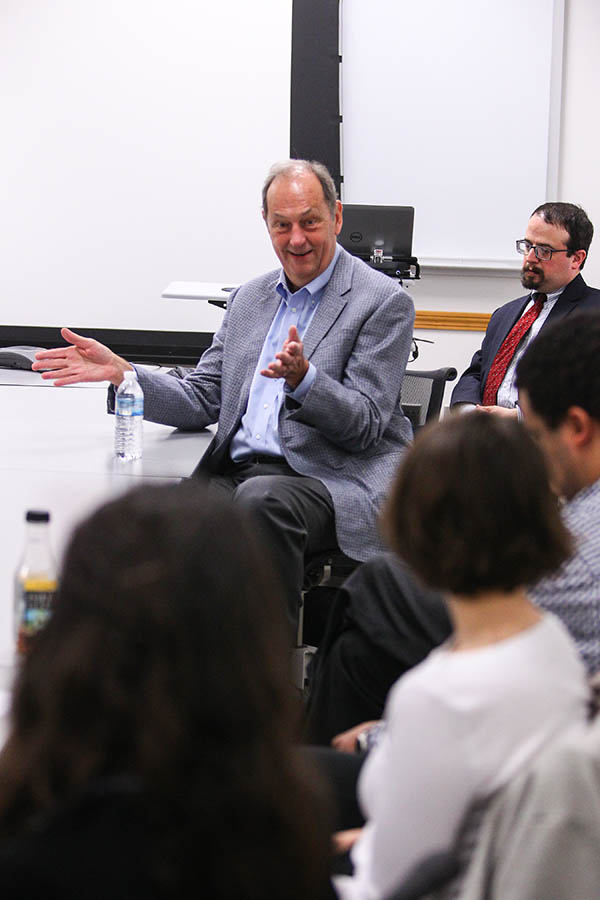 To celebrate the new Gov. James J. Florio Distinguished Scholar Policy Lecture series, former senator Bill Bradley recently spent a day at the Bloustein School. Over the course of the day he met with both students and faculty. At the first discussion the former senator engaged with 15 planning and policy students over lunch. In the afternoon, former Senator Bradley spoke for an hour in the Governor James J. Florio Special Events Forum.
To celebrate the new Gov. James J. Florio Distinguished Scholar Policy Lecture series, former senator Bill Bradley recently spent a day at the Bloustein School. Over the course of the day he met with both students and faculty. At the first discussion the former senator engaged with 15 planning and policy students over lunch. In the afternoon, former Senator Bradley spoke for an hour in the Governor James J. Florio Special Events Forum.
Senator Bradley, along with former Governor James Florio, spoke with the students for almost two hours about his experiences before and after his senate career. There was also an open question and answer period where the students asked specific questions on a variety of topics. The discussion included the 2016 Presidential election, the viability of the current two-party system, the candidacy of Donald Trump, and how the former senator used interpersonal relationships to overcome partisanship within the federal government.
 In the afternoon, Senator Bradley delivered an open lecture to the community. Over the course of the lecture Senator Bradley spoke on different topics. He noted how he was extremely grateful to Governor Florio for taking a chance on supporting him as a neophyte entering state politics. He also expounded upon the importance of looking at issues with a long-term lens. Using environmental issues, pensions, and healthcare as examples, he noted the importance of not getting caught up in short term problems when it comes to a critical, long-term issue. Good leadership, he noted, must act on long-term interests using smart, honest calculations that will further American leadership and democracy throughout the 21st century.
In the afternoon, Senator Bradley delivered an open lecture to the community. Over the course of the lecture Senator Bradley spoke on different topics. He noted how he was extremely grateful to Governor Florio for taking a chance on supporting him as a neophyte entering state politics. He also expounded upon the importance of looking at issues with a long-term lens. Using environmental issues, pensions, and healthcare as examples, he noted the importance of not getting caught up in short term problems when it comes to a critical, long-term issue. Good leadership, he noted, must act on long-term interests using smart, honest calculations that will further American leadership and democracy throughout the 21st century.
After finishing his lecture Senator Bradley took questions from the audience. The audience was very engaged and had many questions, ranging from the current administration’s environmental perspective, the Bernie Sanders and Donald Trump presidential campaigns, the domestic economy, and the tax structure.
